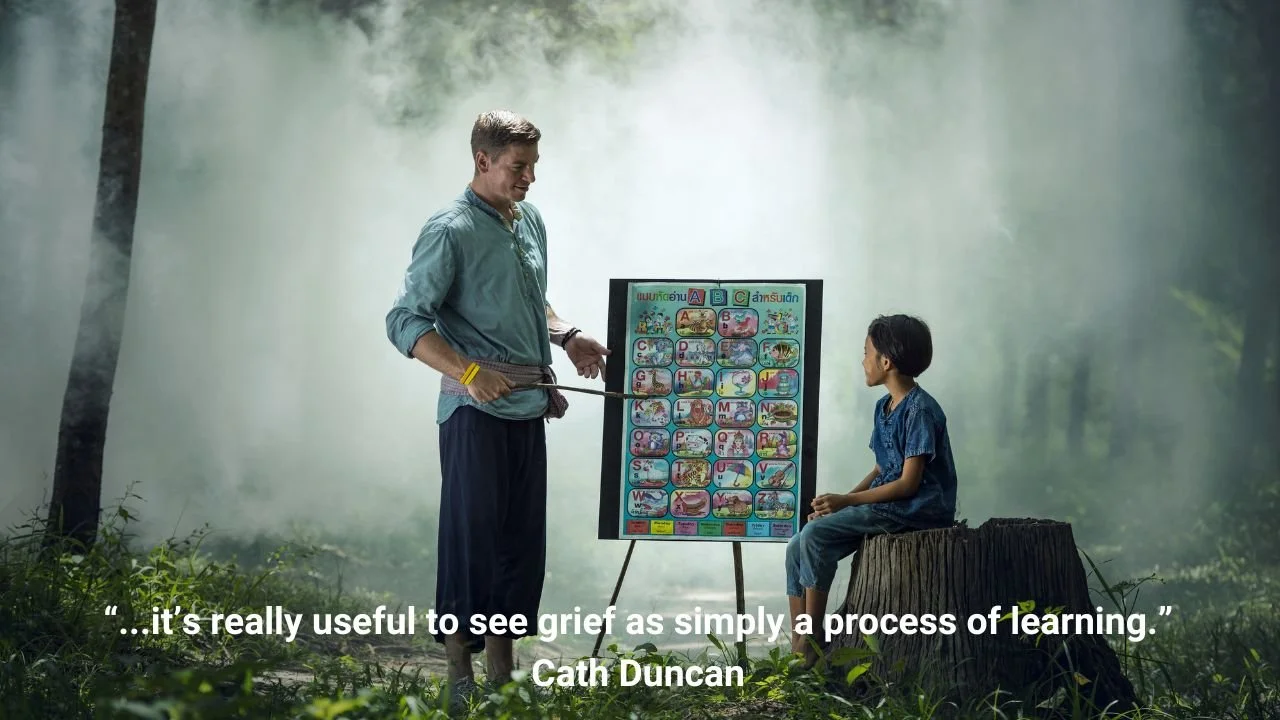Adversity: An Opportunity to Learn
When you face adversity, whether that appears in the form of a loss, a storm, a setback, a season of suffering, what would it look like to approach that season with curiosity instead of closed minded resistance?
I’ve faced several setbacks in my life including a traumatic motorcycle accident, job loss, and loss due to the death of various family members. I learned to treat these setbacks with a curiosity to learn all I could while navigating the challenge of those seasons.
The progress was painfully slow but bit by bit, I found books, articles, stories, letters, and teachers who gave me handles to hold onto so I could take one baby step at a time.
I resonate with what Cath Duncan said about the importance of seeing grief as a process of learning.
“I’ve found it really useful to see grief as simply a process of learning. Sure, it’s probably the steepest learning curve you’ve ever been on, but grieving and learning to live wholeheartedly after loss is also a lot like the many other things that you’ve learned to do. And because I love learning, thinking of grieving as a process of learning helps me feel more resourceful and confident in my grief journey.” — Cath Duncan, Social Worker and Psychologist
Here are three ideas that have helped me frame my grief as a learning journey.
Three Ways to Think About and Act On Grief as a Learning Journey
1. Approach grief like a child learning to walk
A child goes through various stages when learning how to walk. They start out unaware that walking is something they can do. Crawling is all they know. Then one day, they realize walking could help them get places faster. With that new awareness they try it out and fall flat on their face.
Eventually, with several failed attempts and some coaching from parents, they take their first step and eventually a series of steps. Eventually, they walk across and the room and before you know it, they are running all over.
The same happened for me as I learned how to grieve. Before significant loss because my reality, learning to grieve was not something I thought about. Then when loss happened, I became aware that I didn’t know how to grieve and started to look for clues on how to do it. I found help, guidance, and support that started to help me move forward.
I learned by reading, watching people, listening, discussing grief with others, and falling down from time to time. I applied what I learned and find myself growing stronger bit by bit.
2. Adopt a growth mindset and abandon any fixed mindset you might have
A fixed mindset is the belief that you have what you need in your tool box to handle what you’re facing. A growth mindset says, “I don’t have a tool for that but I’ll figure it out and learn what I need to know to grow through it” (Carol Dweck, Mindset: The New Psychology of Success).
A growth mindset gives you the inner motivation to find people who can help you — mentors, authors, and resourceful friends. A growth mindset is like a seed of belief that whispers, “There’s a way through this some how. You just need to find it. - Dweck
If I had fallen for the limiting belief that whispered, “You should know how to handle this already. What’s wrong with you?” I would have wallowed in my shame and not grown through my loss.
I chose to listen to the voice that whispered, “Go ahead into this dark room. People will come along to mentor you and help you find the light switch.”
A fixed mindset says, “Time will heal.” A growth mindset says, “Time alone won’t heal, but time plus empathetic people plus a learning posture will help facilitate your healing.”
3. Apply what you’re learning and grow a heart of wisdom
In the words of Stephen Covey, “To learn and not to do is really not to learn. To know and not to do is really not to know.”
I’ve been a reader for years — ever since a mentor whet my appetite in my late teens. I collect books, read books of all types, and seek to apply what I learn as quickly as possible. Thankfully, if you’re not a reader, there are many other modes of learning you can use like podcasts, videos, documentaries, and audiobooks — to name a few.
The key is not just to gain knowledge but to turn that knowledge into understanding by applying your learning to your life.
Final Thoughts
Learning while grieving is not easy. I’ve learned that from experience and from others. The pay off, however, is worth the effort and work you put into your grieving journey.
Whether you are on your grief journey now or walking with someone else who is grieving, be like a child, adopt a growth mindset, and put into practice what you’re learning in order to grow a heart of wisdom.
Reflection Questions
Where are you in your learning journey?
What evidence shows that you have a growth mindset and not a fixed mindset?
What is the value for you of growing a heart of wisdom while grieving?


